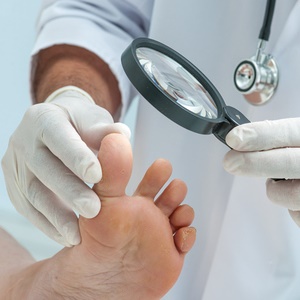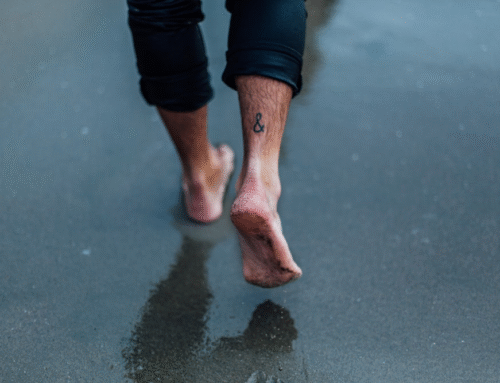Nail Fungus Infection
Nail Fungus affecting the Elderly is more common than you would think. Nail fungus occurs in 10% of Americans, making it an already common ailment. However, the occurrence of nail fungus in the elderly doubles, infecting 50% of adults over the age of 60. After the age of 70, the prevalence of nail fungus further skyrockets, leading to a 60% infection rate. This is quite the stark difference. It is natural to wonder why the elderly are more prone to nail fungus.
Why do the elderly get affected more?
There are a number of different factors that contribute to the higher rate of nail fungus in the elderly. As people get older, there is reduced oxygen flow to the extremities. This means nails grow more slowly and the area is more susceptible to infections, including nail fungus.
Our immunity also naturally worsens as we get older. It is more difficult for the body to fight off nail fungus should it come into contact with the fungal spores. The nails, along with the skin, also become drier. Then, develop cracks in them, thereby creating openings in the natural barrier that the nail creates, and leaving a route of entry for fungal spores to reach the nail. Furthermore, since seniors are less active, they are less likely to notice the nail fungus as it starts to infect them, which allows the condition to progress and worsen.
You can get nail fungus at any age, but here’s why the older you are, the more at risk you are of nail fungus. Decreased blood circulation, natural growth of thickened and slow-growing nails, and age-related ailments like diabetes are all common causes of nail fungus. Not to mention that as we age, our immune system and our body’s natural ability to fight infection and bacteria severely weakens, making us prime targets for nail fungus.
Runners, gym-goers, power walkers, and pretty much anyone constantly active and on the move are at risk of nail fungus due to the amount of pressure they place on their toes, mixed with keeping their feet in an enclosed, dark, warm, and moist environment, which is nail fungus’s favorite place to grow.

The health of older people
Keeping up our health as we age should be our top priority. If you have a family member or housemate with nail fungus, your chances of catching the fungus skyrocket. Nail fungus is extremely infectious. To avoid nail fungus, especially with growing age, you need to be proactive and fight fungus early on. There are an endless number of different creams and protective nail lacquers you can purchase at your local drug store. Fight fungus early on, and you shouldn’t have to worry about any infections with your growing age!

Should they seek treatment?
Our nail doctors highly recommend not leaving this issue untreated. This is because, over time, it will only get worse and might negatively affect people’s daily activities.
Since seniors have lower immunity, cases of nail fungus tend to be more severe and may spread to other parts of the body or people around them. If you or someone you know is displaying signs of nail fungus, contact us today to schedule a free consultation with one of our doctors.
Laser Treatment for Nail Fungus
If you have caught nail fungus, it can be easily treated using the FDA-approved PinPointe laser, which typically only takes one treatment. Other treatments, like topical solutions and oral medication, are not as effective. Topical solutions have a very low cure rate. This is because the solution does not penetrate all the way through the nail bed. Our foot doctors do not recommend oral medication. This is because it can lead to liver toxicity. You would need to have consistent blood tests throughout the course of taking the medication.
Our foot doctor in Walnut Creek, CA, recommends this treatment for toenail fungus. The PinPointe Laser treatment has the highest cure rate in the market. It has no side effects and no recovery period. As a result, you can go about your daily activities right after the treatment. Also, it is not painful.
If you have any signs of nail fungus, call us at (800) 672-0625 or visit our website for more information on our doctors at one of our over 150 locations.





